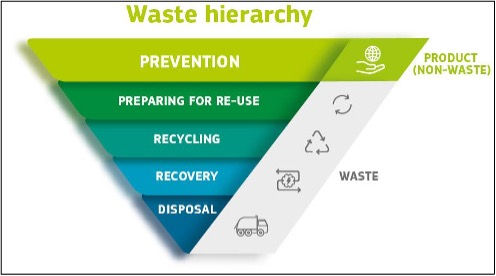The Importance of Standardisation in Research Projects: Why You Should Get Involved
- salimaismayilzada
- Oct 29, 2024
- 3 min read
Standardisation is often overlooked in research projects, yet it plays a crucial role in enhancing the impact and visibility of research outcomes. This article explores the importance of standardisation, showcases insights from successful projects like SMR and ARCH, and outlines how research projects can get involved in standardisation activities. By participating in standardisation, research projects can build valuable networks, increase trust and acceptance of new developments, and achieve professional recognition—all while efficiently using resources. Standardisation is not just an additional task; it's a strategic tool for amplifying the reach and relevance of research.

When engaging in research projects, it's common for partners to question the relevance of standardisation. Often, the immediate reaction is to view it as a peripheral concern, not directly related to the core tasks of the project. However, this perspective overlooks the significant value that standardisation can bring to research initiatives. To shed light on this topic, DIN recently organised a virtual event for the PROBONO partners, focusing on the future of standardisation in research projects and showcasing the remarkable achievements of projects like SMR and ARCH in this area.
Why Should Research Projects Participate in Standardisation?
Standardisation may initially seem like an ancillary activity, but it plays a crucial role in elevating the impact of research projects. It provides a structured way to ensure that the innovations and findings from research are accessible, widely accepted, and effectively integrated into real-world applications. Participating in standardisation can offer numerous benefits, such as building a community of practice, enhancing credibility, and increasing the reach of research outputs.
Ways to Engage in Standardisation
There are several pathways through which a research project can engage in standardisation:
Developing Pre-Standards During the Project Lifecycle: Creating pre-standards, such as a CEN Workshop Agreement (CWA), allows projects to formalise findings and recommendations that can guide future work or influence full standards.
Commenting on Standards in Public Commenting Phases: Engaging in the public commenting phase allows researchers to provide input on standards being developed, ensuring that they reflect the latest scientific insights and practical considerations.
Interacting with Standardisation Committees: Participation in standardisation committees, whether at the national, European, or international level, provides a platform for researchers to influence the direction of standards relevant to their field.
Drafting Standards Through Liaison with Technical Committees: Research projects can take a more active role by participating in the drafting of standards, particularly after establishing a liaison with the relevant technical committee.

Insights from the Experts: Benefits of Standardisation
During the DIN session, a key project partner from SMR and ARCH shared his journey from being a newcomer to a strong advocate for standardisation in research. His experiences in the projects highlighted several key advantages:
Community Building: Engaging in standardisation efforts fosters collaboration across various organisations, creating a network of stakeholders who are collectively working towards common goals.
Cross-Sector Connectivity: Standardisation bridges multiple domains, facilitating connections between sectors that might not typically interact. This cross-sector approach broadens the impact and application of research findings.
Enhanced Interaction Among Key Players: Standardisation serves as a conduit between science, the economy, politics, and the public. This interaction not only disseminates research outcomes but also ensures they are understood and utilized by a broader audience.
Accessibility of R&I Results: Standards provide a formal channel through which research and innovation results can be easily accessed by industry and other stakeholders, amplifying their utility and impact.
Increased Trust and Acceptance: Involving research outputs in standards can significantly boost the trust and acceptance of new developments, as standards are seen as a mark of quality and reliability.
Professional Recognition: Participating in standardisation activities can enhance professional recognition. This can occur through visibility in standardisation bodies, the ability to showcase involvement in shaping standards, and even through awards specifically organised by these bodies.
Efficiency and Impact: Standardisation efforts can yield substantial results with limited resources. For instance, some standardization projects (e.g. CWA development) have managed to go from kick-off to approval in as little as seven months, demonstrating the efficiency of well-organised standardisation activities.
Standardisation offers a powerful means to extend the impact of research, foster collaboration, and ensure that innovations are not only recognised but also integrated into everyday practice. By actively participating in standardisation, research projects can achieve greater visibility, trust, and long-term influence, ultimately leading to a more significant societal impact.
As research increasingly intersects with practical application, the role of standardisation will only grow in importance. For research projects looking to maximise their potential, standardisation offers a clear path forward.




Comments